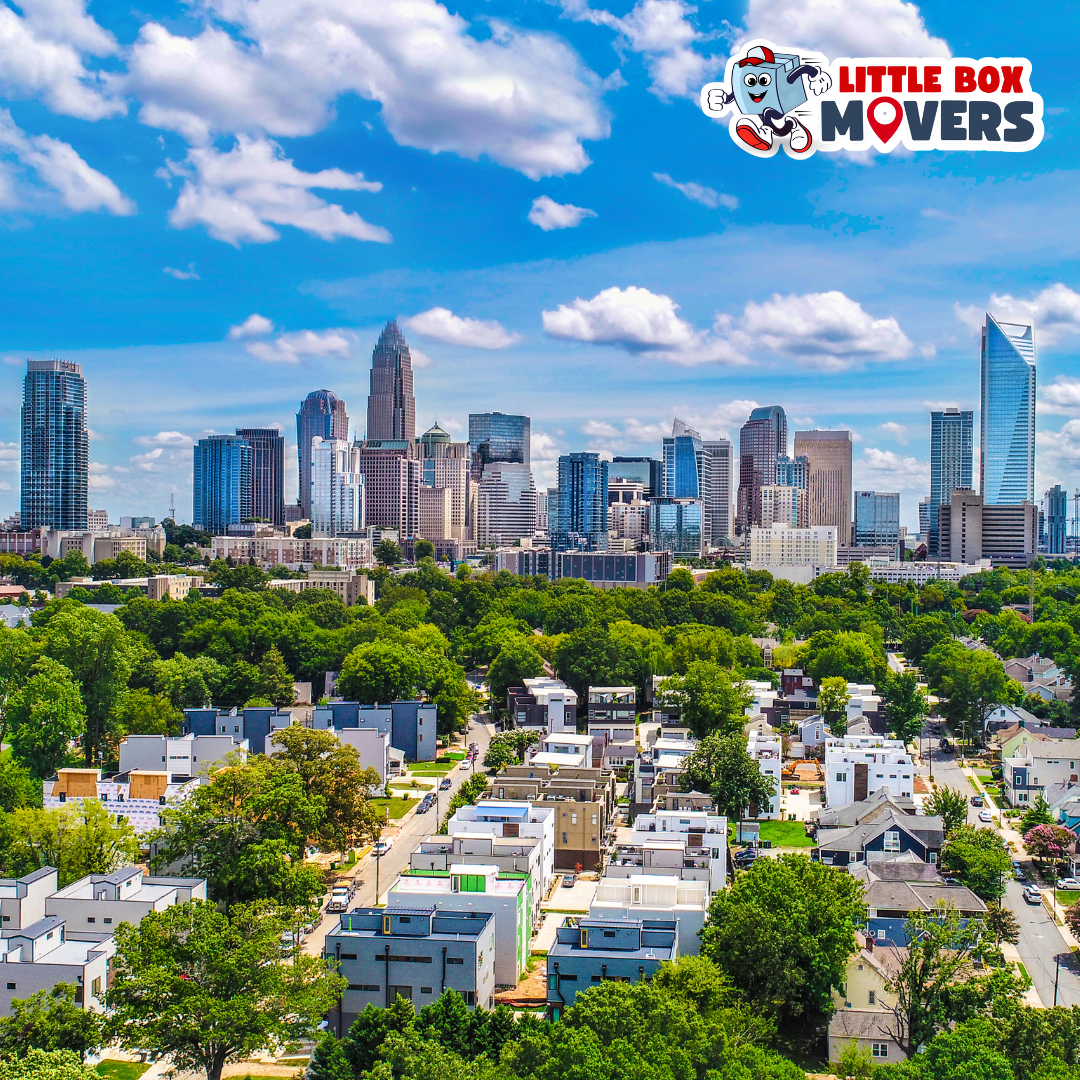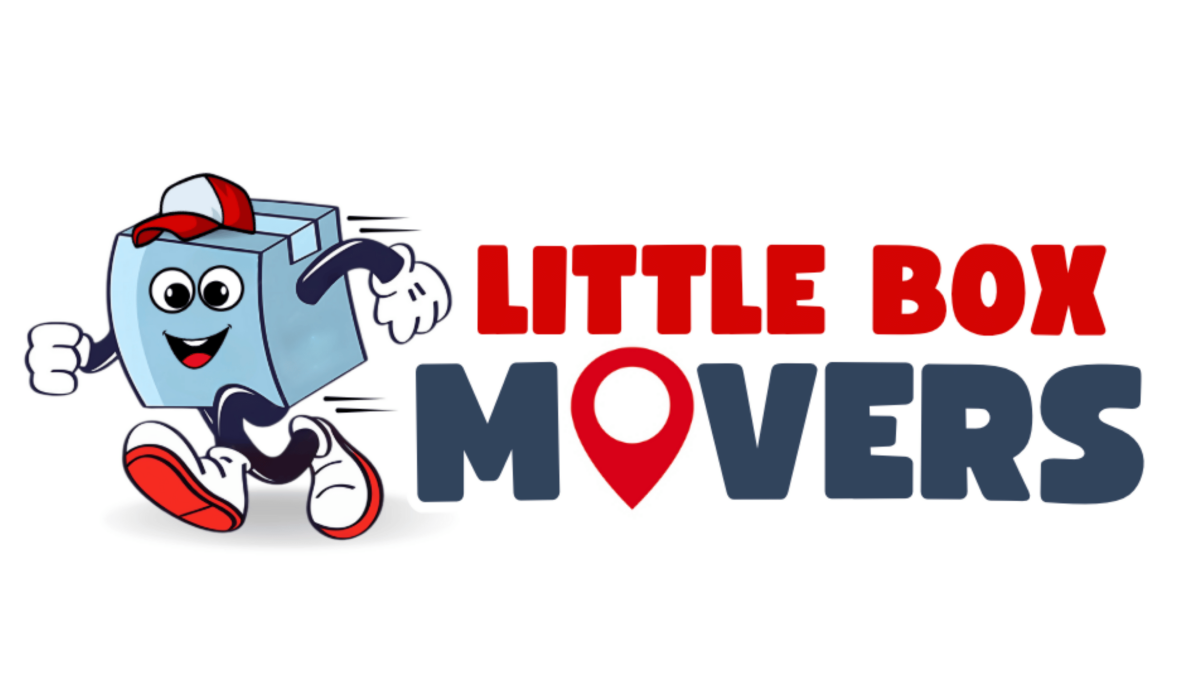Deciding whether to live in Uptown Charlotte or one of its surrounding suburbs really depends on the lifestyle someone wants. Uptown is known for its fast pace, walkability, diverse restaurants, and vibrant nightlife, all just around the corner. On the other hand, suburban neighborhoods offer more space, quieter streets, and a slower, more relaxed pace of life. Both come with their own set of pros and cons, so the decision comes down to personal routine and priorities. In this guide, Little Box Movers shares a practical checklist to help future residents decide which area of Charlotte might be the better match for their next move.
Uptown Charlotte Lifestyle Advantages
One of the biggest perks of living in Uptown Charlotte is its proximity to major workplaces. Several well-known companies like Bank of America and Duke Energy are based there, which means that many people are just a short walk from their offices. Some residents even manage to commute to work in under 15 minutes without needing a car. This convenience not only helps with work-life balance but also builds a stronger sense of connection with coworkers who live nearby.
Another big draw is the wide variety of entertainment options available in Uptown. From local theaters to professional sports arenas, there’s always something going on. The Blumenthal Performing Arts Center hosts a mix of Broadway shows, concerts, and special events. Sports fans can enjoy NFL games at the nearby Bank of America Stadium. When the day winds down, the nightlife kicks in—places like the Epicentre offer a selection of bars, restaurants, and entertainment venues. Residents can spend the night out without needing to drive anywhere.
Public transportation is another benefit that makes getting around Uptown easier. The Lynx Light Rail system runs straight through the center of town, connecting Uptown with several other neighborhoods. This helps reduce commuting costs and makes it easier to live a car-free lifestyle. For those who prefer walking or biking, Uptown has plenty of sidewalks and bike lanes, making it easy to stay active while getting around town.
Uptown also has several well-known museums and cultural centers. Places like the Mint Museum and the Levine Museum of the New South host exhibits that showcase Charlotte’s history and art scene. Living near these cultural spaces allows residents to participate in local events and stay connected to the community. They’re not just educational—they’re part of what makes living in Uptown feel exciting and rooted in Charlotte’s story.
Between job access, entertainment, easy transportation, and cultural spots, Uptown Charlotte offers a vibrant lifestyle that appeals to people who want to be in the middle of it all.
Challenges of Living Uptown
High Cost of Living
One of the most noticeable downsides of living in Uptown is its high cost. Buying a home in this area comes with a higher price tag. According to Zillow, the median home price in Uptown is around $450,000, which is significantly more than in most suburban areas. Renters face similar challenges. A one-bedroom apartment typically costs around $1,800 per month, making it a relatively expensive option, especially for individuals or young families.
Noise and Congestion
City life in Uptown also comes with constant movement and sound. The streets are always busy, and events happen regularly throughout the year. While this liveliness can be fun, it can also become overwhelming. Residents have noted that traffic and noise can be hard to deal with, especially during major events like the CIAA basketball tournament, which draws big crowds and creates heavy traffic.
Limited Green Spaces
Although Uptown has a few parks like Romare Bearden Park and Fourth Ward Park, they’re smaller and more crowded than those found in the suburbs. Many residents say they miss having larger open areas to enjoy nature or relax in peace. The limited green space can make it harder to find a quiet break from city life.
Overall, these challenges are something to seriously think about before deciding to move to Uptown. Next, look at what suburban living has to offer.
Benefits of Suburban Living
Suburban neighborhoods in Charlotte are especially appealing to families or anyone seeking more space to spread out. Houses in areas like Ballantyne and Huntersville often come with larger floor plans and spacious yards. It’s common to find properties that offer not just more indoor living space but also backyards where kids can play and pets can run free. Compared to Uptown, these homes offer more value for the price.
In fact, Charlotte's housing market shows that suburban homes usually offer 20–30% more space for the same price as a smaller home in the city. For many, the choice between a small Uptown apartment or a roomy suburban house is pretty straightforward, especially for those wanting outdoor space or future room to grow.
Good Schools
Families with kids often choose the suburbs because of the highly rated public schools. Schools like Marvin Ridge High School and Ardrey Kell High School consistently score well in statewide rankings. Parents feel confident that their children are being prepared for college and beyond, whether through academic programs or extracurricular activities.
Community feedback also supports this idea. Parents often comment on the positive learning environment, supportive teachers, and wide range of activities. These schools play a major role in making suburban living appealing for those raising families.
Community Feel
Another strong point of suburban living is the sense of community. Suburbs tend to foster stronger neighbor relationships, partly due to local events like farmers' markets, school fundraisers, and neighborhood festivals. These gatherings provide an opportunity to connect with others and foster a sense of belonging.
Whether it's chatting with neighbors during a school bake sale or attending a local concert in the park, these shared experiences help people feel like they’re part of a community. This connectedness is often a big reason people choose suburban life over the city.
But as with any lifestyle, the suburbs come with a few challenges of their own.
Downsides of Suburban Areas
A major downside of suburban living is the heavy reliance on personal vehicles. In most suburban areas, public transportation is limited or completely absent. That means owning a car isn’t just convenient—it’s necessary.
Running daily errands, commuting to work, and even getting kids to school all involve driving. According to a study by INRIX, suburban Charlotte residents can spend about an hour each day commuting. Over time, this adds up both in terms of time and transportation costs. It can also be frustrating, especially during rush hour or when running multiple errands in one day.
Potential for Isolation
Although suburban homes offer more space, that same spaciousness can also lead to a feeling of isolation. With homes farther apart and fewer shared public spaces, social interaction can take more effort. Some residents report rarely seeing their neighbors, especially when work and family schedules get busy. While community events exist, it’s easier to feel disconnected in a spread-out environment.
Limited Nightlife
In terms of evening entertainment, suburban areas tend to be quieter. You might find a few local restaurants or bars, but they often close earlier and don’t have the same energy or variety that Uptown does. For people who enjoy going out at night, attending live shows, or trying new places, this lack of options can feel limiting.
Over time, the slower pace and smaller social scene might not be enough for people who enjoy a more active lifestyle. It’s something to think about when weighing the pros and cons of suburban life.
Uptown vs. Suburbs: Key Differences
Here’s a quick look at how the two areas compare:
Factor | Uptown Charlotte | Suburban Areas |
|---|---|---|
Housing Costs | Higher, less space | Lower, more space |
Commute Times | Shorter, public transit | Longer, car-dependent |
Entertainment | Lots of options | Fewer options |
Schools | Average quality | Highly rated |
Community | Busy, more public interaction | Tight-knit, quieter |
Uptown housing tends to be smaller and more expensive. It suits people who prioritize location and fast access to work and entertainment. Suburbs, on the other hand, offer more space at a better price, which is attractive to growing families or individuals seeking long-term comfort.
Commutes also vary. Uptown offers shorter commutes and access to public transit, while suburban residents typically have to drive more. That could affect someone’s schedule, energy levels, and overall day-to-day satisfaction.
For those who value nightlife and cultural experiences, Uptown offers a wider range of choices. From art galleries to late-night spots, the city’s variety outpaces what most suburbs can offer. In contrast, the suburbs have fewer options but cater to a quieter lifestyle.
Schools are a key factor for families. Suburban schools typically have better reputations, which makes them more appealing to those who prioritize education. Uptown options may not meet the same standards, which could influence parents' decisions.
Lastly, the community vibe differs. Uptown feels active, but also more anonymous. Suburbs offer a slower pace of living with more opportunities to form close connections.
Checklist for Choosing Your Perfect Neighborhood
To make a smart decision, it helps to run through a quick checklist:
- Budget: Look at more than just the cost of rent or a mortgage. Factor in taxes, utilities, and commuting expenses. Living in Uptown might cost more up front, but the time saved commuting could balance it out.
- Commute Time: Charlotte traffic can be a hassle. Think about how long you’re willing to spend on the road each day and whether public transportation is an option.
- Lifestyle Preferences: Do you prefer an energetic city vibe or the calm of the suburbs? Your everyday happiness will depend on where you feel more comfortable.
- School Ratings: If you have or plan to have kids, check out local schools and their rankings. A good school system can improve quality of life and property values.
- Community Activities: Some people love attending local events and being part of a neighborhood. Others want peace and quiet. Choose an area that matches your social preferences.
- Future Plans: Consider where you’ll be in five years. Will your family grow? Will your job change? Thinking ahead helps you choose a place that suits both your current needs and future plans.
Carefully reviewing these points can help you select a neighborhood that truly suits your lifestyle.
Choosing between Uptown Charlotte and its surrounding suburbs comes down to what matters most in your day-to-day life. Uptown appeals to those seeking excitement, convenience, and access, while the suburbs offer more room, stronger schools, and a deeper sense of community. By using this guide and reflecting on priorities like budget, commute, and future plans, anyone can find a spot in Charlotte that feels just right.
Why Choose Little Box Movers for Your Next Move?
Moving in uptown Charlotte or its surrounding suburbs can be a daunting task, and finding the right moving company is crucial in ensuring a smooth and stress-free experience. That's where Little Box Movers comes in – with their expert knowledge of the area and top-notch moving services, they are the go-to choice for many residents in Charlotte.
Contact them at 704-389-9979 for a quote, and let their team of professionals make your next move a breeze.





